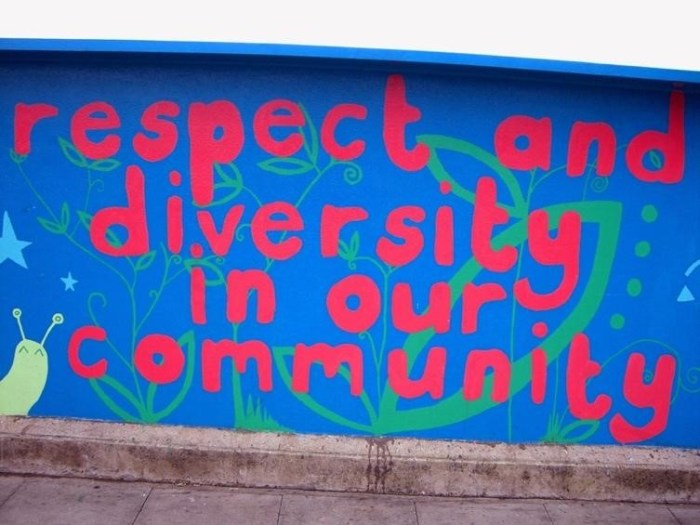
Community-based networking is redefining the way we connect, collaborate, and innovate in today’s digital landscape. It emphasizes the power of collective engagement, enabling individuals and businesses to tap into shared resources and insights that can drive growth and creativity. By fostering connections within specific communities, we can unlock opportunities that don’t just enhance personal networks but also catalyze innovative ideas and solutions.
In essence, community-based networking goes beyond traditional networking methods; it involves creating a supportive ecosystem where members actively contribute to one another’s success. This approach not only helps in building strong relationships but also allows for the exchange of diverse perspectives, making it a vital tool for businesses and professionals alike.
Understanding Community-based Networking
In today’s interconnected digital world, community-based networking is a fundamental concept that fosters collaboration and engagement among individuals and organizations. This approach emphasizes the value of community relationships in enhancing personal and professional networks, making it a crucial pillar in the modern networking landscape.Community engagement plays a vital role in creating meaningful networking opportunities. By involving members in open discussions, events, and collaborative projects, communities can cultivate relationships that go beyond mere professional interactions.
This not only enriches the networking experience but also leads to the sharing of diverse ideas and resources, which can significantly enhance innovation and support.
Different Platforms for Community-based Networking
Several platforms have emerged to facilitate community-based networking, each catering to different interests and needs. These platforms allow individuals to connect, share ideas, and collaborate effectively. Here are some notable examples:
- Social Media Groups: Platforms like Facebook and LinkedIn offer groups where members can engage in discussions related to specific interests or industries.
- Professional Networking Sites: Websites such as LinkedIn are dedicated to professional networking, allowing users to connect with colleagues and industry leaders.
- Community Forums: Websites like Reddit and specialized forums provide spaces for individuals to discuss various topics, share insights, and seek advice.
- Event Platforms: Platforms like Meetup and Eventbrite facilitate in-person community events, helping individuals connect face-to-face.
Business Innovation through Community Networks
Community-based networking has shown remarkable potential for driving business innovation. By tapping into community insights and collaborative efforts, businesses can unlock new ideas and solutions that traditional approaches may overlook.Many businesses have successfully implemented community-based networking strategies to foster innovation. For instance, companies like Airbnb and Uber have leveraged local community networks to gather feedback and adapt their services to meet specific needs.
This community-centric approach has not only led to improved customer satisfaction but also encouraged the development of new features and services tailored to local preferences.
Fostering Community-driven Ideas
The processes involved in fostering community-driven ideas typically include engaging with community members through surveys, forums, and direct discussions. By creating an open environment for feedback, businesses can capture valuable insights that inform their innovation strategies. Below are effective methods businesses can use:
- Hosting Workshops: Organizing brainstorming sessions with community members can lead to creative problem-solving and idea generation.
- Utilizing Social Media: Encouraging discussions on social platforms can reveal trends and preferences within the community.
- Collaborative Projects: Partnering with local organizations for joint initiatives can spark innovation and strengthen community ties.
International Business and Community Networking
In the realm of international business, community-based networking plays a significant role in navigating cultural differences. Understanding these nuances is essential for building effective networks across borders.Cultural differences can greatly influence communication styles, relationship-building practices, and business etiquette. By being aware of these distinctions, businesses can tailor their networking strategies to foster better engagement with international communities.
Building Effective International Networks
Strategies for building effective international networks through community engagement include:
- Localized Engagement: Adapting marketing and communication strategies to align with local customs and values enhances relationship-building.
- Cross-cultural Training: Providing training for employees on cultural awareness can improve interactions with international partners.
- Partnerships with Local Entities: Collaborating with local organizations can facilitate smoother entry into new markets and help establish credibility.
Conducting Business Interviews within Networks
Conducting interviews that leverage community-based networks can yield valuable insights and foster deeper connections. A structured framework is essential for maximizing the effectiveness of these interviews.A well-designed framework can guide interviewers in identifying key community leaders and potential interviewees. This process often involves assessing community involvement, expertise, and willingness to share insights.
Identifying Community Leaders
Techniques for identifying community leaders as potential interviewees include:
- Networking Events: Attending local events can help identify influential figures within the community.
- Online Platforms: Utilizing social media to connect with thought leaders and active community members can reveal potential interview subjects.
- Referrals: Seeking recommendations from trusted community members can lead to valuable interview opportunities.
Job Search Techniques Utilizing Community Networking
Community networking is a powerful tool for job seekers looking to enhance their prospects. Employing effective strategies can significantly improve the chances of landing a desired position.Building a solid network within the community enables job seekers to tap into hidden job markets and gain insights into potential employers.
Effective Job Search Strategies
Strategies for an effective job search that includes community networking involve:
- Attending Networking Events: Participating in local job fairs and professional meetups can provide direct connections to hiring managers.
- Engaging in Community Activities: Volunteering or joining local organizations can lead to new professional relationships and opportunities.
- Leveraging Social Media: Using platforms like LinkedIn to reach out to professionals in target industries can result in valuable referrals.
Community Approaches to Business Management

Community-driven management styles emphasize collaboration and inclusivity, offering several benefits for organizations. This management approach fosters a culture of trust and engagement among employees.Effective community-based management practices prioritize employee input, leading to higher morale and productivity.
Key Management Practices
Key management practices that emphasize community involvement include:
- Open Communication: Encouraging feedback and suggestions from team members creates an inclusive environment.
- Team Collaboration: Promoting cross-departmental projects allows for diverse perspectives and shared ownership of outcomes.
- Recognition Programs: Acknowledging employee contributions fosters a sense of belonging and loyalty to the organization.
Marketing Directly through Community Networks
Creating targeted marketing campaigns informed by community insights is crucial for businesses aiming to connect with their audience effectively. Understanding community needs and preferences helps shape marketing strategies.Community-based marketing initiatives resonate with consumers, leading to increased engagement and loyalty.
Successful Community-based Marketing Initiatives
Successful examples of community-based marketing initiatives include:
- Local Sponsorships: Supporting community events or teams can enhance brand visibility and build goodwill.
- Customer Feedback Programs: Actively seeking input from community members can inform product development and marketing strategies.
- Content Marketing: Sharing stories that highlight community involvement can strengthen brand identity and foster connection.
Building Effective Business Networking Strategies
Developing a business networking strategy rooted in community connections requires a systematic approach. A well-structured plan can help organizations maximize their networking efforts.A step-by-step approach to building a business networking strategy includes evaluating effectiveness and addressing barriers.
Step-by-step Approach
The process for building a networking strategy includes:
- Defining Goals: Establish clear objectives for networking efforts to ensure alignment with business strategy.
- Identifying Key Contacts: Map out potential community connections that align with business goals.
- Monitoring Progress: Regularly assess the outcomes of networking activities to refine strategies as needed.
Outsourcing and Community Collaboration
Community engagement can open up opportunities for outsourcing tasks, benefiting small businesses seeking cost-effective solutions. Collaborating with local talent can lead to successful outsourcing arrangements.The benefits of community-based outsourcing include access to specialized skills and flexibility in managing resources.
Successful Community Collaborations
Examples of successful community collaborations resulting in outsourcing solutions include:
- Freelance Networks: Connecting with local freelancers can provide businesses with on-demand expertise without the overhead of full-time hires.
- Cooperative Ventures: Partnering with other businesses to share resources and services can enhance efficiency and reduce costs.
- Community Workshops: Organizing skill-building workshops can create a pipeline of local talent for outsourcing needs.
Business Presentations within Community Contexts
Tailoring business presentations for community-focused audiences is crucial for effective communication. Understanding the audience’s interests and values can enhance engagement during presentations.Engaging community members requires careful planning and consideration of their unique perspectives.
Engaging Community Members
Techniques for engaging community members during presentations include:
- Interactive Elements: Incorporating Q&A sessions or polls can foster participation and keep the audience engaged.
- Relatable Content: Sharing local success stories or examples can help connect with the audience on a personal level.
- Follow-up Opportunities: Providing avenues for further discussion or questions after the presentation encourages ongoing engagement.
Enhancing Business Productivity with Community Support
Leveraging community resources can significantly improve business productivity. Local networks often provide valuable support and accountability, which are essential for small businesses.Community engagement creates a collaborative environment that fosters productivity and innovation.
Strategies for Leveraging Community Resources
Strategies for harnessing community resources to improve business productivity include:
- Collaborative Workspaces: Utilizing community co-working spaces can enhance creativity and foster collaboration among local entrepreneurs.
- Peer Mentorship: Engaging with other local business owners for support and advice can lead to improved decision-making and strategies.
- Resource Sharing: Establishing partnerships with other businesses to share tools and resources can reduce costs and enhance efficiency.
Community Influence in the Restaurant Industry
Community-based networking can play a pivotal role in driving customer loyalty within the restaurant industry. Engaging with local communities ensures that restaurants meet the preferences and needs of their patrons.Building strong community ties can lead to increased customer retention and positive word-of-mouth.
Engaging with Local Communities
Methods for restaurants to effectively engage with local communities include:
- Community Events: Hosting events like food festivals or cooking classes can attract local patrons and showcase culinary talents.
- Local Sourcing: Partnering with local farmers and suppliers fosters community support and enhances menu authenticity.
- Loyalty Programs: Implementing programs that reward local customers can encourage repeat visits and strengthen loyalty.
Resumes and Cover Letters Tailored for Community Impact
Incorporating community involvement into resumes and cover letters can significantly enhance job applications. Highlighting relevant experiences showcases a candidate’s commitment to community engagement.Demonstrating community-based achievements can set candidates apart from others in competitive job markets.
Showcasing Community-based Achievements
Tips for effectively showcasing community-based achievements in job applications include:
- Emphasizing Volunteer Work: Detailing volunteer experiences that demonstrate leadership and teamwork can enhance credibility.
- Highlighting Community Projects: Including specific projects that involved community collaboration can show initiative and impact.
- Community References: Providing references from community leaders can add weight to job applications and validate experiences.
Retail Strategies Utilizing Community Networks
Community-driven retail strategies can enhance customer experience and foster loyalty. Understanding local preferences allows retailers to tailor their offerings effectively.Engaging with communities ensures that retailers remain relevant and responsive to consumer needs.
Community-driven Retail Strategies
Community-driven retail strategies that enhance customer experience include:
- Local Events: Organizing in-store events that reflect community interests can create buzz and attract foot traffic.
- Customer Feedback Mechanisms: Actively seeking feedback through surveys or social media can help retailers refine their product offerings.
- Collaborative Promotions: Partnering with local businesses for joint promotions can increase visibility and attract new customers.
Risk Management in Community-based Enterprises
While community-based networking offers numerous benefits, it also presents potential risks that businesses must address. Understanding and mitigating these risks is essential for successful community collaborations.Proactive risk management strategies can help safeguard community initiatives and maintain positive relationships.
Assessing Risks Associated with Community Collaborations
Strategies for assessing risks in community-based enterprises include:
- Conducting Risk Assessments: Regular evaluations of community partnerships can identify potential challenges or conflicts.
- Establishing Clear Guidelines: Creating agreements that Artikel expectations and responsibilities can prevent misunderstandings.
- Monitoring Community Sentiment: Staying attuned to community feedback can help businesses anticipate issues and address them proactively.
Community-driven Business Sales Techniques
Utilizing community networks for effective sales strategies can significantly enhance success rates. Building trust and credibility within communities is essential for fostering lasting customer relationships.Sales techniques rooted in community engagement often yield higher conversion rates and customer loyalty.
Building Trust within Community Networks
Methods for building trust and credibility within community networks include:
- Transparent Communication: Being open and honest with community members fosters trust and goodwill.
- Personalized Engagement: Tailoring sales approaches to match community preferences can create stronger connections.
- Community Testimonials: Leveraging positive feedback from community members can enhance credibility and attract new customers.
Sales Management within Community Contexts
Managing sales teams in community-based environments presents unique challenges, but it also offers opportunities for enhanced performance. Understanding community dynamics is crucial for effective sales management.Sales strategies that incorporate community insights can lead to improved outcomes.
Best Practices for Integrating Community Insights
Best practices for integrating community insights into sales management include:
- Training on Community Engagement: Equipping sales teams with skills to engage effectively with community members can enhance rapport.
- Incorporating Feedback Loops: Establishing channels for feedback from community members can inform sales tactics and strategies.
- Recognizing Community Contributions: Acknowledging the role of community in sales successes can motivate teams and strengthen relationships.
Teleselling Strategies through Community Connections
Incorporating community insights into teleselling techniques can greatly enhance effectiveness. Understanding community members’ needs allows for more personalized and impactful outreach.Building rapport through community engagement is key to successful teleselling.
Building Rapport with Clients
Approaches for building rapport with clients through community engagement include:
- Personalized Outreach: Tailoring communication to reflect community interests can create a more relatable approach.
- Community Involvement: Participating in local events or initiatives can strengthen connections with potential clients.
- Utilizing Shared Connections: Leveraging mutual contacts within the community can enhance credibility and facilitate introductions.
Training Sales Teams with Community Involvement
Incorporating community engagement in sales training programs can yield significant benefits. Training that emphasizes community interaction prepares sales teams for successful outreach.Community involvement fosters a culture of collaboration and understanding.
Conducting Community-based Sales Training
Techniques for conducting community-based sales training sessions include:
- Hands-on Learning: Organizing role-plays that simulate community interactions can enhance practical skills.
- Guest Speakers: Inviting community leaders to share insights can provide valuable perspectives for sales teams.
- Feedback Mechanisms: Encouraging feedback from community members on sales approaches can refine training programs.
Ensuring Business Security through Community Networks
Community networks can enhance security measures for businesses by fostering a sense of shared responsibility. Collaborative efforts among community members contribute to a safer environment.Building trust within community networks is essential for effective security strategies.
Building Trust within Community Networks

Strategies for building trust to improve security include:
- Community Awareness Programs: Educating community members on security issues fosters vigilance and cooperation.
- Regular Communication: Maintaining open lines of communication ensures that security concerns are addressed promptly.
- Collaborative Initiatives: Partnering with law enforcement and community organizations can enhance overall security efforts.
Supporting Small Businesses via Community Networks
Small businesses face unique challenges, but community networking offers valuable support. Engaging with local communities can provide essential resources and opportunities for growth.Strategies that leverage community networks can empower small businesses to thrive.
Strategies for Engaging with Communities
Effective strategies for small businesses to engage with their communities include:
- Networking Events: Hosting or participating in local events can raise awareness and foster connections with potential customers.
- Collaborative Marketing: Partnering with other small businesses for joint promotions can increase visibility and attract new clientele.
- Community Feedback: Actively seeking input from community members can help businesses tailor their offerings to better meet local needs.
Empowering Solo Professionals through Community Networking
Solo professionals can leverage community networks for growth and support. Building a personal brand within the community is crucial for establishing credibility and attracting clients.Community connections provide solo professionals with valuable resources and opportunities.
Building a Personal Brand
Ways for solo professionals to build a personal brand within their communities include:
- Active Participation: Engaging in community activities and events showcases commitment and builds recognition.
- Sharing Expertise: Offering workshops or webinars can establish authority and attract potential clients.
- Networking with Peers: Collaborating with other professionals can enhance visibility and create referral opportunities.
Strategic Planning with Community Input
Integrating community feedback into business strategic planning is essential for long-term success. Community insights can inform decisions and ensure alignment with local needs.Hosting community forums is an effective way to gather insights for planning.
Hosting Community Forums
Techniques for hosting community forums to gather insights include:
- Open Discussions: Encouraging dialogue on relevant topics fosters engagement and generates diverse perspectives.
- Structured Feedback Sessions: Organizing focused discussions can yield targeted insights for strategic initiatives.
- Leveraging Technology: Utilizing online platforms can broaden participation and gather input from a wider audience.
Team Building through Community Activities
Community engagement plays a significant role in effective team building. Organizing community-focused team-building events strengthens relationships among team members.Participating in community activities fosters collaboration and enhances team dynamics.
Organizing Community-focused Team-building Events
Strategies for organizing community-focused team-building events include:
- Volunteer Opportunities: Participating in community service projects promotes teamwork and social responsibility.
- Local Challenges: Engaging in friendly competitions with other community teams can enhance camaraderie.
- Networking Mixers: Hosting informal gatherings allows team members to connect with community members and broaden their networks.
Community Engagement in Venture Capital
Community networks can significantly influence venture capital decisions. Startups that engage with their communities can attract funding and support.Strategies for startups to engage communities include building strong relationships and showcasing local impact.
Attracting Venture Capital through Community Engagement
Techniques for attracting venture capital through community engagement include:
- Demonstrating Local Impact: Highlighting community benefits during pitches can resonate with investors.
- Building Relationships: Networking with local investors can establish trust and enhance funding prospects.
- Community Support Initiatives: Engaging in initiatives that benefit the community can showcase commitment and appeal to investors.
Enhancing Workplace Communication through Community Engagement
Community engagement fosters open communication within businesses, enhancing employee relationships and collaboration. Utilizing community insights can improve overall workplace communication.Effective communication leads to better teamwork and increased productivity.
Strategies for Utilizing Community Insights
Strategies for utilizing community insights to improve workplace communication include:
- Regular Check-ins: Establishing frequent check-ins with employees encourages feedback and open dialogue.
- Community Forums: Hosting forums to discuss workplace matters can provide valuable insights and foster collaboration.
- Transparent Policies: Communicating organizational changes and community involvement initiatives builds trust and understanding.
Ensuring Workplace Safety through Community Practices
Community engagement influences workplace safety initiatives. Involving employees and community members in safety discussions creates a culture of safety and accountability.Businesses that incorporate community feedback into safety protocols can enhance overall workplace safety.
Incorporating Community Feedback in Safety Protocols
Strategies for incorporating community feedback into safety protocols include:
- Safety Audits: Conducting regular safety audits with community input can identify areas for improvement.
- Training Programs: Offering training that includes community perspectives fosters a comprehensive understanding of safety measures.
- Feedback Mechanisms: Establishing channels for reporting safety concerns encourages proactive engagement from employees and community members.
Ending Remarks
In conclusion, the significance of community-based networking cannot be overstated. It’s a dynamic method for engaging with others, sharing valuable insights, and fostering an environment of mutual support. As we continue to navigate the complexities of both local and global markets, leveraging these community connections will be essential for sustained innovation and growth. Embracing this networking model can lead to new possibilities, enriching our professional journeys and enhancing the overall business landscape.
FAQ Guide
What is community-based networking?
Community-based networking involves building professional and personal connections within a specific community to enhance collaboration and innovation.
How can businesses benefit from community networking?
Businesses can leverage community networks to access new ideas, foster customer loyalty, and improve their overall marketing strategies.
What platforms are best for community-based networking?
Popular platforms include social media networks, local business groups, and community forums that facilitate engagement and connection.
How do cultural differences affect community-based networking?
Cultural differences can influence communication styles and relationship-building, making it essential to understand local customs and practices when networking internationally.
What role does community feedback play in business decisions?
Community feedback provides valuable insights that can shape product offerings, marketing strategies, and overall business practices.




